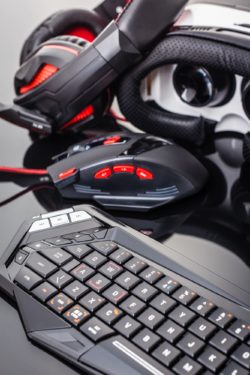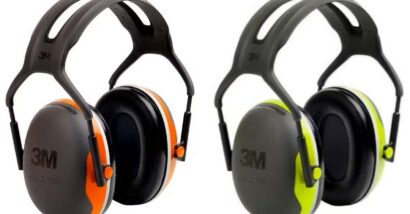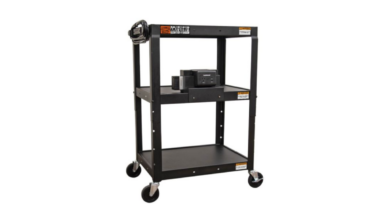Top Class Actions’s website and social media posts use affiliate links. If you make a purchase using such links, we may receive a commission, but it will not result in any additional charges to you. Please review our Affiliate Link Disclosure for more information.
An angry gamer recently brought an application for authorization of a class action lawsuit against HP before the Superior Court of Québec. The complaint alleges that HP’s Pavilion Gaming keyboard 500 is defective and was falsely advertised to consumers.
The keyboard in question, HP’s Pavilion Gaming keyboard 500, is marketed as a mechanical keyboard. This means the keyboard offers more precision than a traditional membrane keyboard and is therefore considered a “must-have” for gamers.
HP also marketed the keyboard as “anti-duplication with N-key rollover,” which refers to a technology that allows simultaneous pressing of keys. Additionally, the keyboard was supposed to be equipped with a highly valued gaming feature, Anti-ghosting. This technology refers to a 3-key rollover, usually found on gaming keys like WASD.
HP’s website flaunts the Pavilion Gaming keyboard’s impressive technology to consumers : “Swift. Smooth. Silent. Maximize potential with a mechanical keyboard engineered to deliver speed with every stroke. Equipped with Red switches, every key press provides lightning-fast response times—taking your work and play to unmatched levels.”
However, the HP defective keyboard class action lawsuit claims that the keyboard is neither mechanical nor equipped with the advertised functions.
According to the HP class action lawsuit, the keys are on a membrane, and therefore, the keyboard is not mechanical.
This is crucial in terms of gaming, because when a user “simultaneously presses the W, A and SPACE keys or the W, D and SPACE keys, no action is produced,” whereas characters are supposed to jump up and down or left and right when the user presses those key combinations. As such, alleges the HP class action lawsuit, the keyboard is rendered useless for gaming.

Importantly, as per Quebec product liability law, the defect in question is “latent,” meaning, it is not detectable by ordinary examination. Therefore, consumers would have no way of knowing about the defects upon examining the keyboard prior to purchase.
HP Pavilion Gaming keyboard 500: “Non-existent Features”
The proposed HP class action lawsuit alleges that by manufacturing, marketing and selling the Pavilion Gaming keyboard 500 as having specific and sought-after gaming features, while knowing all along that these features were non-existent, HP made false or misleading representations, thus violating Quebec’s Consumer Protection Act.
The plaintiff’s lawyers claim that HP had to know about the Pavilion Gaming keyboard 500 defects, as many consumers brought the defects to HP’s attention, including the plaintiff, Adrian Khazaiy.
Adrian allegedly informed HP of the defects several times, and was sent replacement gaming keyboards by HP. However, each replacement keyboard sent by HP had the same defects. The proposed HP class action highlights that despite being notified of the defects, HP refused to withdraw the Pavilion Gaming keyboard 500 from the market and continued to advertise it under the same false and misleading claims. This was done, according to the HP class action lawsuit, “to maximize its profits,” and as such, “HP knowingly and willfully marketed and sold a product under false pretences.”
As per consumer protection case law, where a prohibited business practice has been established, such as false or misleading representations, there is no need to prove actual damages. This is because the law creates an irrefutable presumption that damages exist. In the case of the HP Pavilion Gaming keyboard 500, consumers did not suffer the usual damages, such as physical harm or loss of income. Rather, consumers lost the money spent on the defective keyboard. Nevertheless, Class Members can count on the presumption to obtain damages and hold HP responsible for misrepresentation.
The HP class action lawsuit seeks punitive and moral damages to be determined in court. Additionally, the class action seeks a declaration as to the nullity of all transactions for the purchase of the HP Pavilion Gaming keyboard 500, and the restitution of the amount paid by Class Members for the defective keyboard.
Class Members included in the HP class action lawsuit are Quebec residents who have purchased HP’s Pavilion Gaming keyboard 500 since February 26, 2017.
Did you buy HP’s Pavilion Gaming keyboard 500 or another gaming keyboard from HP? Was the keyboard defective? Share your experiences with us in the comments below!
The plaintiff and Class Members are represented by CaLex Légal Inc.
The HP Class Action Lawsuit is Adrian Khazaiy v. HP Canada Cie, Case No. 500-06-001047-204, in the Superior Court of Québec, District of Montreal, Canada.
Read More Lawsuit & Settlement News:
Alterra Mountain Company Hit With Class Action Lawsuit Over Ski Pass Refunds
Gym Service Fees Class Action Lawsuit Filed After COVID-19 Closures
Shaw Facing Lawsuit Filed by Telus Claiming ‘Misleading’ Internet Advertising
Canada Roundup Glyphosate Cancer Class Action Lawsuit Investigation
ATTORNEY ADVERTISING
Top Class Actions is a Proud Member of the American Bar Association
LEGAL INFORMATION IS NOT LEGAL ADVICE
Top Class Actions Legal Statement
©2008 – 2024 Top Class Actions® LLC
Various Trademarks held by their respective owners
This website is not intended for viewing or usage by European Union citizens.

















